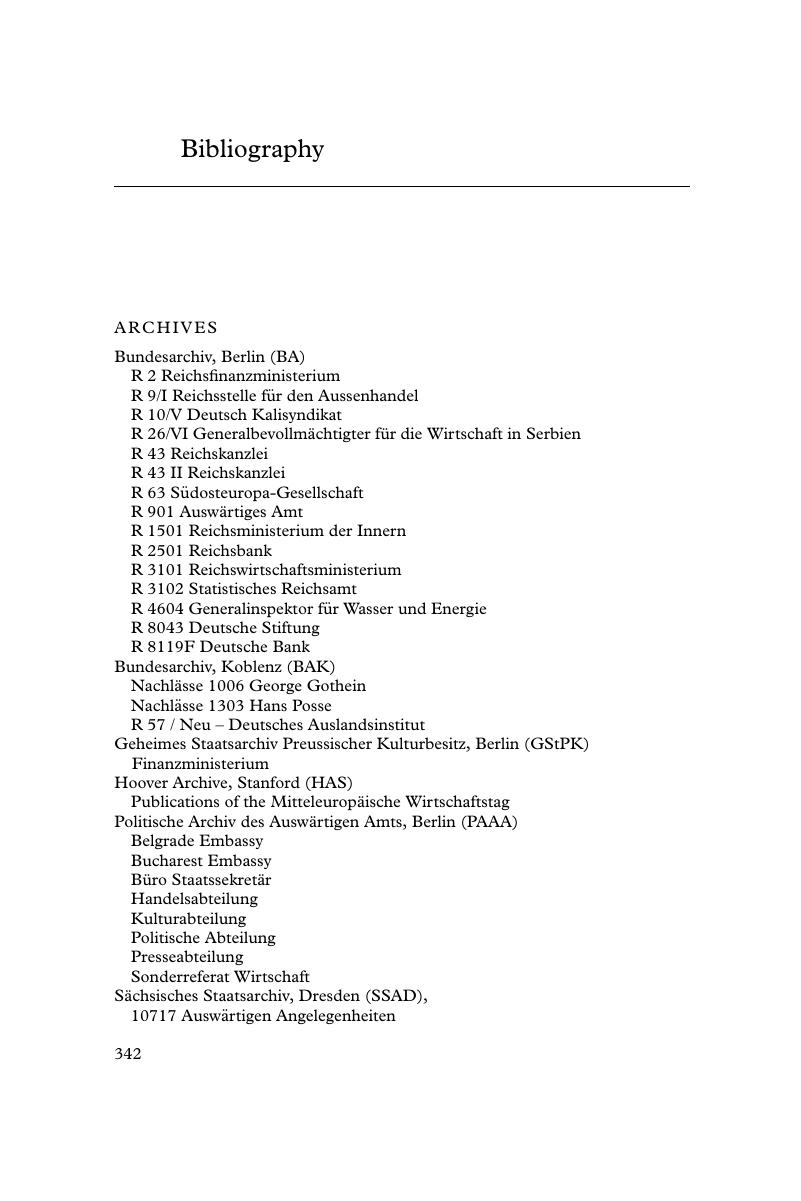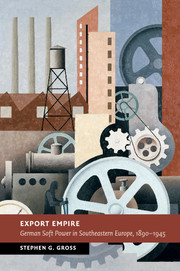Book contents
- Export Empire
- New Studies in European History
- Export Empire
- Copyright page
- Dedication
- Contents
- Figures and tables
- Book part
- Glossary
- Frontispiece
- Introduction: The foundations of soft power and informal empire
- Part I German power in the Wilhelmine Empire and the Weimar Republic
- Part II Nazi imperialism
- Conclusion: Imperialism realized?
- Bibliography
- Index
- References
Bibliography
Published online by Cambridge University Press: 05 December 2015
- Export Empire
- New Studies in European History
- Export Empire
- Copyright page
- Dedication
- Contents
- Figures and tables
- Book part
- Glossary
- Frontispiece
- Introduction: The foundations of soft power and informal empire
- Part I German power in the Wilhelmine Empire and the Weimar Republic
- Part II Nazi imperialism
- Conclusion: Imperialism realized?
- Bibliography
- Index
- References
Summary

- Type
- Chapter
- Information
- Export EmpireGerman Soft Power in Southeastern Europe, 1890–1945, pp. 342 - 371Publisher: Cambridge University PressPrint publication year: 2016



